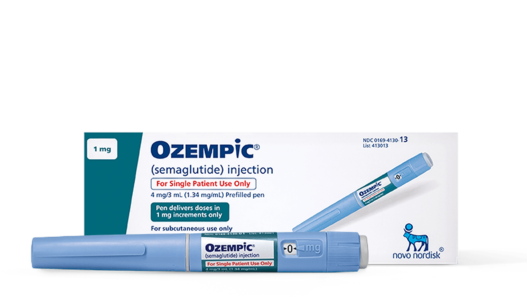The ketogenic diet, popularly known as the keto diet, has gained immense popularity as a weight-loss strategy and a potential therapeutic approach for various health conditions. While it promises significant benefits, it also comes with its set of challenges. This comprehensive guide delves into the keto diet advantages and disadvantages to help you understand if this diet is the right choice for you.
Understanding the Keto Diet
The keto diet is a high-fat, low-carbohydrate eating plan designed to push your body into a state of ketosis. In ketosis, your body shifts from using glucose (derived from carbs) as its primary energy source to burning fat for fuel. This metabolic state is achieved by drastically reducing your carbohydrate intake, typically to about 20-50 grams per day.

The Macronutrient Breakdown:
- 5% Carbohydrates: The diet allows for a very small amount of carbs, primarily from non-starchy vegetables and leafy greens. It excludes carb-rich foods like grains, beans, fruits, and starchy vegetables.
- 20% Protein: Protein sources on the keto diet include meat, eggs, and cheese. The protein intake is moderate to avoid kicking the body out of ketosis.
- 75% Fats: The majority of your calories come from fats, including oils, butter, avocados, and nuts.
The primary goal of the keto diet is to enter and maintain ketosis, a metabolic state where your body burns fat for energy instead of carbohydrates.
Keto Diet Advantages
1. Effective for Weight Loss
One of the most significant advantages of the keto diet is its effectiveness in promoting weight loss. By shifting the body’s metabolism to burn fat for energy, the keto diet can lead to rapid weight loss, especially in the initial stages.
- Reduced Appetite: High-fat foods are more satiating, meaning they keep you full for longer periods, reducing overall calorie intake.
- Water Weight Reduction: The initial weight loss on the keto diet is often due to the depletion of glycogen stores, which causes a significant loss of water weight.
2. Improved Blood Sugar and Insulin Levels
For those with type 2 diabetes or insulin resistance, the keto diet can be highly beneficial. By drastically reducing carbohydrate intake, the diet helps stabilize blood sugar levels and improve insulin sensitivity.
- Lower Blood Sugar Spikes: The minimal carb intake prevents the sharp spikes in blood sugar levels that occur after consuming high-carb foods.
- Enhanced Insulin Sensitivity: Improved insulin sensitivity can reduce the need for medication in some diabetic individuals, making the keto diet advantages particularly relevant for managing diabetes.
3. Potential Neurological Benefits
The keto diet was initially developed as a treatment for epilepsy in the 1920s. It has been proven effective in reducing the frequency of seizures in children who do not respond to traditional therapies. Moreover, there is growing interest in the potential benefits of the keto diet for other neurological conditions.
- Neuroprotective Effects: Research suggests that the keto diet may offer benefits for conditions such as Alzheimer’s disease, Parkinson’s disease, and multiple sclerosis. While more research is needed, these potential benefits make the diet appealing for those with neurological concerns.
4. Increased Energy and Mental Clarity
Many people on the keto diet report increased energy levels and improved mental clarity once they adapt to ketosis. This is often attributed to the steady supply of energy from fat rather than the fluctuating energy levels associated with carbohydrate consumption.
- Stable Energy Levels: The keto diet provides a consistent source of energy, which can help prevent the energy crashes often experienced with high-carb diets.
- Enhanced Cognitive Function: The brain efficiently uses ketones as a fuel source, which may lead to improved focus and mental clarity, further highlighting the advantages of the keto diet.
Keto Diet Disadvantages
1. Challenging to Sustain
One of the most notable disadvantages of the keto diet is its restrictive nature, which can make it difficult to maintain over the long term.
- Strict Food Restrictions: The diet’s low carbohydrate limit means you must avoid many common foods, including bread, pasta, rice, and even most fruits. This can make meal planning challenging and repetitive.
- Social and Lifestyle Constraints: The keto diet can be difficult to adhere to in social situations, where carb-heavy foods are often prevalent. This can lead to feelings of isolation or the temptation to cheat on the diet, making it one of the significant keto diet disadvantages.
2. Nutrient Deficiencies
The restrictive nature of the keto diet can lead to nutrient deficiencies if not carefully managed. Since the diet excludes many nutrient-rich foods, such as fruits, whole grains, and legumes, you may miss out on essential vitamins and minerals.
- Lack of Dietary Fiber: The elimination of many fruits, vegetables, and whole grains can result in a lack of fiber, leading to digestive issues like constipation.
- Vitamin and Mineral Deficiencies: Potential deficiencies in vitamins A, C, K, and several B vitamins, along with minerals like magnesium and potassium, are common on the keto diet. Addressing these deficiencies often requires careful planning or supplementation.
3. Keto Flu and Other Side Effects
When you first start the keto diet, your body undergoes a significant metabolic shift, which can result in what is commonly known as the “keto flu.” This collection of symptoms can include fatigue, headaches, nausea, and irritability.
- Keto Flu: The keto flu typically occurs during the first few days of the diet as your body adapts to burning fat instead of glucose. While temporary, these symptoms can be discouraging and are often cited as one of the disadvantages of the keto diet.
- Dehydration and Electrolyte Imbalance: As the body loses glycogen, it also loses water and electrolytes, which can lead to dehydration and an imbalance in minerals such as sodium, potassium, and magnesium.
4. Potential Negative Impact on Heart Health
The high-fat content of the keto diet, especially when it includes a significant amount of saturated fats, raises concerns about cardiovascular health.
- Increased LDL Cholesterol Levels: Some studies have shown that the keto diet may lead to an increase in LDL cholesterol, often referred to as “bad” cholesterol, and triglycerides, which are risk factors for heart disease.
- Healthy Fat Sources: To mitigate this risk, it’s important to focus on consuming healthy fats, such as those found in avocados, nuts, seeds, and olive oil, rather than relying heavily on saturated fats from sources like red meat and butter.
Conclusion: Is the Keto Diet Right for You?
Understanding the keto diet advantages and disadvantages is crucial before deciding to embark on this dietary journey. While the keto diet offers several benefits, such as effective weight loss, improved blood sugar control, and potential neurological benefits, it also presents challenges, including sustainability issues, nutrient deficiencies, and possible side effects like the keto flu.
Before starting the keto diet, it’s essential to consult with a healthcare professional, especially if you have underlying health conditions or concerns about its long-term impact. The keto diet can be an effective tool for weight loss and managing certain health conditions, but it’s not a one-size-fits-all solution. Balancing the diet with a focus on nutrient-rich foods and considering other dietary approaches, like intermittent fasting or the Mediterranean diet, may provide a more sustainable path to health and wellness.






















